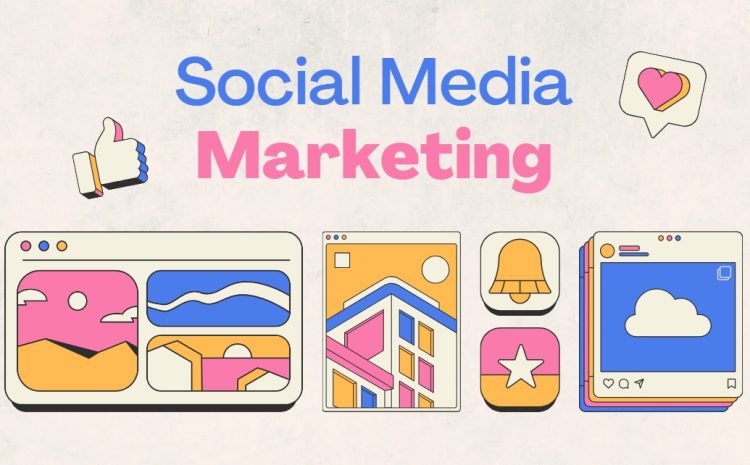Social Media Marketing
Social media marketing refers to the process of using social media platforms to promote products, services, or brands. It involves creating and sharing content, engaging with audiences, and running targeted ads to increase brand awareness, drive website traffic, and generate leads or sales. Below are the key components of an effective social media marketing strategy:
1. Goal Setting
- Brand Awareness: Increase visibility and recognition of your brand.
- Engagement: Foster interactions, comments, shares, and likes to create a community around your brand.
- Lead Generation: Collect contact information or inquiries from interested individuals.
- Sales: Drive conversions and sales directly through social media platforms.
- Customer Service: Use social media for customer support to address inquiries or resolve issues.
2. Platform Selection
The platforms you choose depend on your target audience:
- Facebook: Best for broad consumer targeting and paid advertising.
- Instagram: Highly visual, suitable for brands with strong visual content.
- Twitter: Great for real-time communication, news, and trending topics.
- LinkedIn: Ideal for B2B marketing and professional networking.
- TikTok: Excellent for reaching younger demographics with short-form, creative content.
- Pinterest: Effective for lifestyle, fashion, food, and DIY brands.
- YouTube: The go-to platform for long-form video content and tutorials.
3. Content Creation
High-quality content is key to engaging your audience:
- Visuals: Photos, infographics, and videos are essential for catching attention.
- Text: Write compelling captions, headlines, and calls-to-action (CTAs).
- User-Generated Content: Encourage followers to create content about your brand.
- Stories and Live Videos: Leverage stories and live streams for real-time interaction.
4. Content Calendar
A content calendar helps organize and schedule posts, ensuring consistency in your posting frequency. It’s important to post regularly to stay top of mind with your audience.
5. Engagement
Responding to comments, direct messages, and mentions can help build relationships and a loyal community. It’s crucial to maintain an active presence and engage in conversations.
6. Hashtags and Keywords
Using relevant hashtags on platforms like Instagram, Twitter, and TikTok can increase the reach of your posts. Keyword research can also help optimize your content for better visibility.
7. Paid Advertising
Social media platforms offer robust advertising tools that allow you to run targeted campaigns:
- Facebook/Instagram Ads: Great for targeting specific demographics.
- LinkedIn Ads: Ideal for B2B targeting.
- TikTok Ads: Reach a younger audience with engaging video ads.
- Pinterest Ads: Focus on product discovery and intent-driven actions.
8. Analytics and Reporting
Tracking performance is essential to refining your strategy:
- Engagement Rates: Measure likes, comments, shares, and interactions.
- Reach and Impressions: Track how many people have seen your content.
- Click-Through Rates (CTR): Analyze the effectiveness of your CTAs.
- Conversion Metrics: Track the actions people take, like purchases or sign-ups.
9. Influencer Marketing
Collaborating with influencers can boost credibility and reach a wider audience. Influencers create content that resonates with their followers while subtly promoting your brand.
10. Trends and Community Building
Stay current with trending topics and viral challenges, especially on platforms like TikTok and Instagram. Participate in trends or start your own to build a community of followers who are engaged with your brand.
In summary, social media marketing requires a balanced approach of strategic planning, creativity, consistency, and data analysis. Regularly evaluating and adjusting your approach based on performance metrics will help you stay competitive in the fast-paced world of social media.





